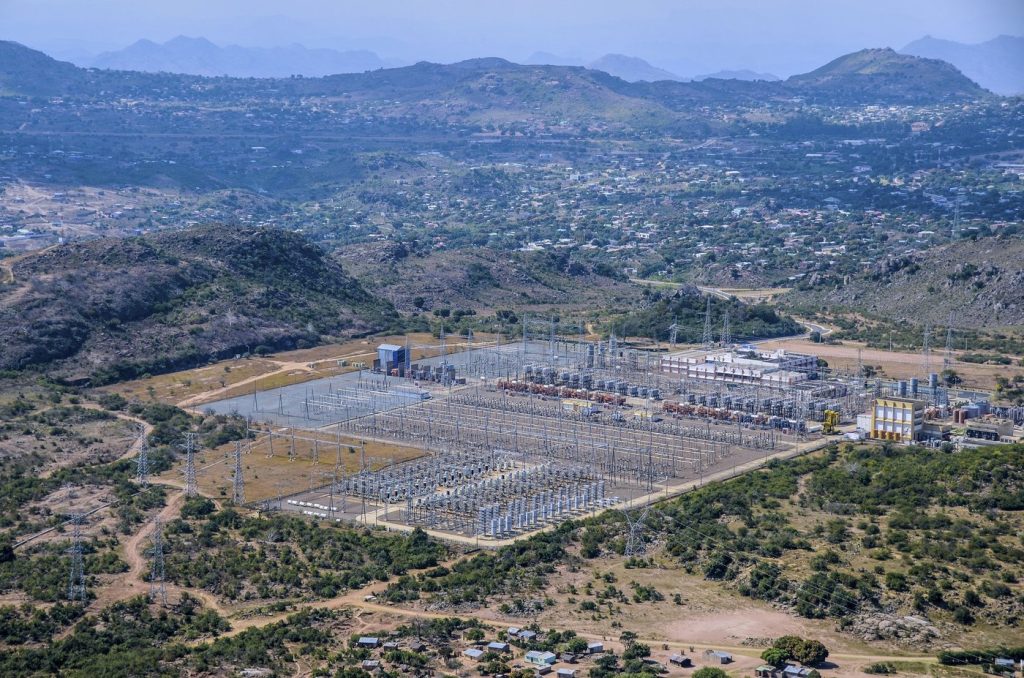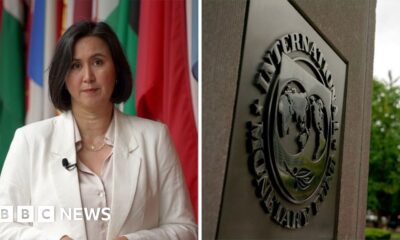Business
Mozambique Launches $6 Billion Electricity Project to Transform Economy

Mozambique has initiated a transformative $6 billion electricity project, marking the largest hydroelectric development in southern Africa in over half a century. The Mphanda Nkuwa hydroelectric plant aims to connect all of the country’s 33 million citizens to electricity by 2030, significantly changing the landscape of energy access in one of the world’s poorest nations.
During a recent visit to Mozambique, World Bank President Ajay Banga highlighted the profound impact of electricity on local economies. He met entrepreneurs like Hermínio Guambe, a barber whose business flourished following the introduction of power to his village. Guambe now utilizes hair dryers in his shop, and local pharmacies are able to refrigerate essential medicines. “Electricity isn’t just light, it’s a chance,” Banga stated, emphasizing the broader economic opportunities that come with power access.
The Mphanda Nkuwa project, located 60 kilometers downstream from the Cahora Bassa hydroelectric dam along the Zambezi River, is projected to generate 1,500 megawatts when operations commence in 2031. This development is crucial for a region that faces a 10,000-megawatt deficit, which currently hinders millions from accessing electricity. As of 2024, electricity access in Mozambique has nearly doubled from 31% in 2018 to 60%, according to the state-run energy supplier, Electricidade de Moçambique (EDM). The company has connected 563,000 homes in 2024 and aims to reach 600,000 this year.
The World Bank’s involvement in the Mphanda Nkuwa project reflects a shift in development funding strategies. Rather than financing the project outright, the World Bank is providing essential support, including concessional funding for legal and environmental matters, along with partial risk guarantees and political risk insurance. Banga noted that this approach moves away from the traditional reliance on donor funding for high-impact projects, aligning with a global trend towards private sector-led growth.
Political dynamics also played a role during Banga’s visit. President Daniel Chapo, who assumed office following a contentious election, rallied support from locals as he raised his fist to cheering crowds. The Mphanda Nkuwa plant represents not just an energy solution, but also a symbol of political and economic hope for Mozambique.
Beyond the immediate benefits of the Mphanda Nkuwa project, there are broader implications for the region. Mozambique stands to earn vital foreign exchange through electricity exports to neighboring countries like South Africa and Zimbabwe. This is part of a larger trend of hydropower projects in Africa, with Ethiopia preparing to launch its own $4 billion Grand Renaissance Dam, expected to generate over 5,000 megawatts.
Despite the potential benefits, challenges remain. The World Bank and the International Hydropower Association estimate that around 90% of Africa’s hydropower capacity is currently untapped. Joaquim Ou-Chim, chairman of EDM, acknowledged the difficulties in extending the national grid across Mozambique’s vast territory. He indicated that off-grid solutions, particularly solar energy, will play a crucial role moving forward, with approximately 10% of the country’s electricity access coming from these off-grid projects.
Concerns regarding the financial sustainability of these large projects are also being raised. Evaristo Cumbane, an energy consultant based in Maputo, stressed the importance of developing smaller, local energy sources alongside large-scale projects. “We are talking about plenty of rivers, plenty of sunshine, plenty of wind, plenty of coastlines,” he emphasized, noting that the real needs of Mozambique are often found in its rural areas.
Cumbane also warned about the country’s growing debt burden, which has reached approximately $17 billion as of early 2025. The Finance Ministry reported a record $2.1 billion in debt service payments in 2023. He cautioned, “The World Bank is not a godfather… These are not donations,” highlighting the need for careful financial planning regarding the Mphanda Nkuwa hydroelectric project.
Since gaining independence from Portugal in 1975, Mozambique has faced numerous challenges, from civil war to ongoing security issues in the northern regions. These factors have complicated the nation’s path to economic stability. Nevertheless, the success of electrification projects offers a glimpse of potential, as demonstrated by Guambe’s thriving barbershop.
In another impoverished neighborhood visited by Banga, Aurélio Arlindo, aged 38, expressed hope for the future. Unemployed and living without electricity, he sees new power poles as a sign of change. “It’s really coming. I am just waiting,” he shared, looking forward to opening a cold drinks stall once power reaches his area.
The Mphanda Nkuwa project represents a critical step towards transforming Mozambique’s energy landscape and economy, with the potential to uplift millions of lives across the nation.
-

 World3 months ago
World3 months agoScientists Unearth Ancient Antarctic Ice to Unlock Climate Secrets
-

 Entertainment3 months ago
Entertainment3 months agoTrump and McCormick to Announce $70 Billion Energy Investments
-

 Lifestyle3 months ago
Lifestyle3 months agoTransLink Launches Food Truck Program to Boost Revenue in Vancouver
-

 Science3 months ago
Science3 months agoFour Astronauts Return to Earth After International Space Station Mission
-

 Technology2 months ago
Technology2 months agoApple Notes Enhances Functionality with Markdown Support in macOS 26
-

 Top Stories1 week ago
Top Stories1 week agoUrgent Update: Fatal Crash on Highway 99 Claims Life of Pitt Meadows Man
-

 Sports3 months ago
Sports3 months agoSearch Underway for Missing Hunter Amid Hokkaido Bear Emergency
-

 Politics3 months ago
Politics3 months agoUkrainian Tennis Star Elina Svitolina Faces Death Threats Online
-

 Technology3 months ago
Technology3 months agoFrosthaven Launches Early Access on July 31, 2025
-

 Politics3 months ago
Politics3 months agoCarney Engages First Nations Leaders at Development Law Summit
-

 Entertainment3 months ago
Entertainment3 months agoCalgary Theatre Troupe Revives Magic at Winnipeg Fringe Festival
-

 Politics2 weeks ago
Politics2 weeks agoShutdown Reflects Democratic Struggles Amid Economic Concerns











